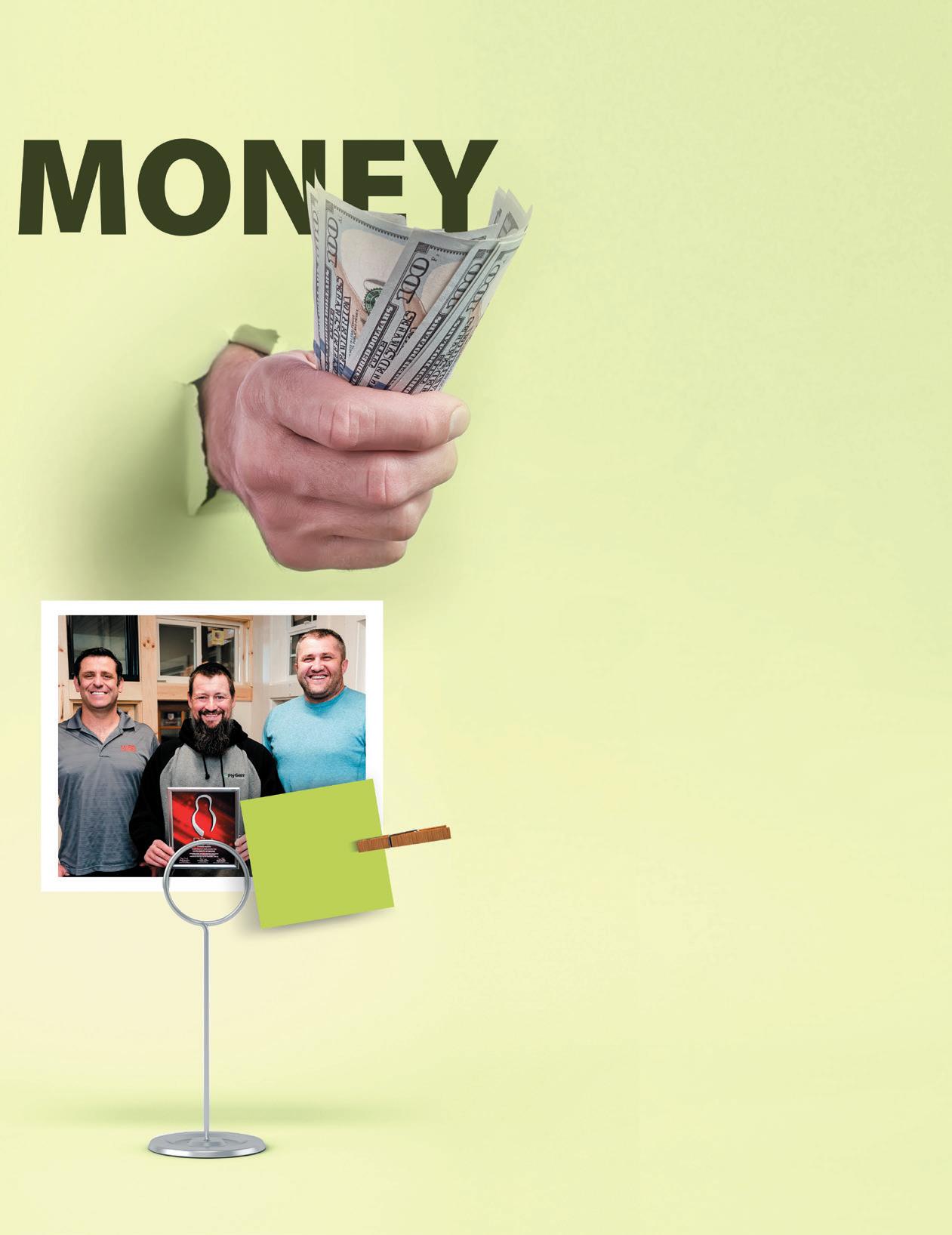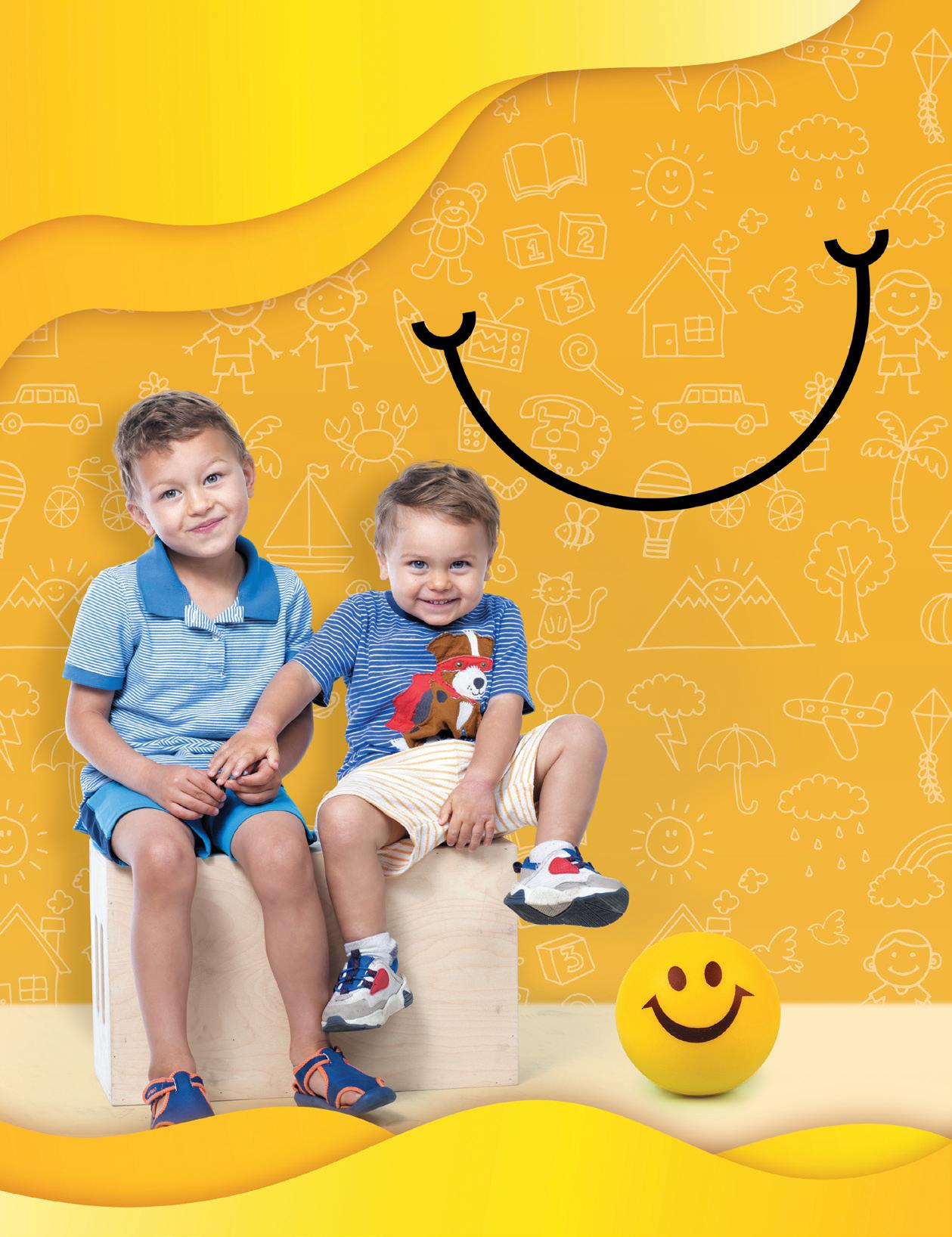
14 minute read
COVID-19 HEROES UNITED
by R A M
2020 STARTED OUT MORE LIKE A HOLLYWOOD BLOCKBUSTER THAN REAL LIFE. IN A FEW MONTHS, SO MANY EVENTS, CHANGES, AND INNOVATIONS HAD TAKEN PLACE THROUGHOUT THE WORLD SO THESE QUESTIONS AROSE: “WHAT WILL THE WORLD LOOK LIKE AFTER THE PANDEMIC AND WHAT DOES THE FUTURE HOLD FOR ALL OF US?” THERE ARE MANY PESSIMISTIC SCENARIOS, BUT THIS ABSOLUTELY DOES NOT RESONATE WITH OUR EDITORIAL IDEOLOGY.
We, in our editorial department, are convinced that it is extremely important to keep our focus on positive things. This is why we have dedicated our main article to people who actively worked and served their community during the quarantine. Each of them, in their own sphere, tried to help and support those who were most affected by the crisis.
Advertisement
Discover how the individuals depicted on our magazine cover went through the quarantine and how they view the world after 2020.
How has your work, business, or lifestyle changed due to the Coronavirus?
At work, I became a cheerleader. When we had to cancel more than 50 events (non-profit events, catering, Sushiology classes, speaking engagements, and more) because of the COVID-19 pandemic, I started using my time to encourage our teammates in every way possible. I used personal meetings, emails, and even social media to keep moral up. On the business side, our corporate team and our managers have been working very hard to learn all the regulations and guidelines and find ways to survive in this challenging time. Thankfully, I was overwhelmed by our amazing teammates’ dedication and our customers’ support for our limited business using curbside pick-up. I enjoyed my new lifestyle during COVID-19. I was able to do things that I could not do before. I prayed more, cleaned, organized, remodeled the house, worked on our backyard, walked with our dog every morning and so much more! I truly enjoyed the break from my addiction of being so busy.
What was the main lesson or insight that you have learned during the quarantine?
Faith over fear! This pandemic brought me so many positive outcomes. We just have to keep kaizening (continuously improving) ourselves in every way as we adjust to the new normal.

What was the main challenge for you during this uncertain time?
We lost around 500 teammates and 50% of our sales because of COVID-19. The hardest thing for me was not knowing our future so we couldn’t make any plans. The whole world had no idea what to do or what to expect.
What are you most grateful for?
I want to say I am grateful for everyone around me, but God is the one who created them! Because of God, I never felt depressed or had any anxiety. I have so much joy, hope and peace in my heart that I feel like we are not just in survival mode but “thrivalmode”! We are all essential to God!
Do you think the world will be the same after everything that has happened?
The world might not be the same and it shouldn’t be! I feel like this was a good reset for every one of us to learn to focus on the most important things. I also pray for #MikUnited (Mikuni means The Kingdom of God). We are one human race under Mikuni! This is the time to be united as one and reach the common goal as we increase God’s love to the world! Owner of Mikuni Japanese Restaurant & Sushi Bar

How has your work, business, or lifestyle changed due to the Coronavirus?
The biggest impact that the Coronavirus has had on me, personally and professionally, has been the inability to be out helping in the community. As you know, giving back to our community through volunteerism is at the core of what Wells Fargo stands for. It’s also at the core of who I am.
For the past 2 ½ months, I, as well as my colleagues and so many other Sacramentans, haven’t been able to volunteer or support our community through people power — building homes with Habitat for Humanity, or helping with food drives and distributions, or mentoring children. While the virus affected many businesses and “normal” operations, it hasn’t stopped homelessness, domestic violence, or food insecurities; it’s likely made them worse. Nonprofits servicing our area have seen an influx of need, but a lack of people power to help carry out those supportive efforts. That being said, I would like to add that while Wells Fargo representatives haven’t been physically out in the community, we have continued to financially support organizations helping people impacted by COVID. For example, in April, the Wells Fargo Foundation donated $200,000 to six local nonprofits providing COVID relief efforts including emergency food supplies. Those contributions are part of a $175 million donation from the Wells Fargo Foundation to support economic recovery for communities, small businesses, and vulnerable populations affected by COVID-19. From a business perspective, with important safety measures in place — including required appointments to meet with personal bankers and enhanced cleaning — Wells Fargo branches continue to support our customers while implementing social distancing guidelines. Whether in a branch, over the phone, or online, our employees are committed to helping our customers succeed financially.
What was the main lesson or insight you have learned during the quarantine?
Rightly, many of our customers have been apprehensive Capital Foothills Region about leaving their homes amid the Coronavirus pandemic. The quarantine has forced many parents to juggle their workload and household responsibilities, while taking on a new role as their children’s schoolteacher. One thing I’ve learned is that now, more than ever, people are in need of options that are convenient. Fortunately, the digital banking options available on WellsFargo.com or our Wells Fargo app make online banking easy, safe, and convenient. Customers can handle most of their banking needs using these platforms. They can check their balances, pay bills, transfer money, deposit checks using their smart phones, and send and receive money using Zelle®.
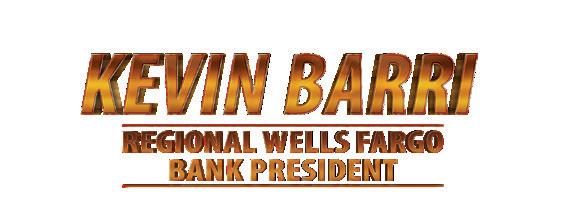
What was the main challenge for you during this uncertain time?
The pandemic has been a challenge for everyone. During this time, we’ve all learned how to work together.
We are still navigating day to day challenges, but we’re committed to doing what is right for our customers, employees and communities.
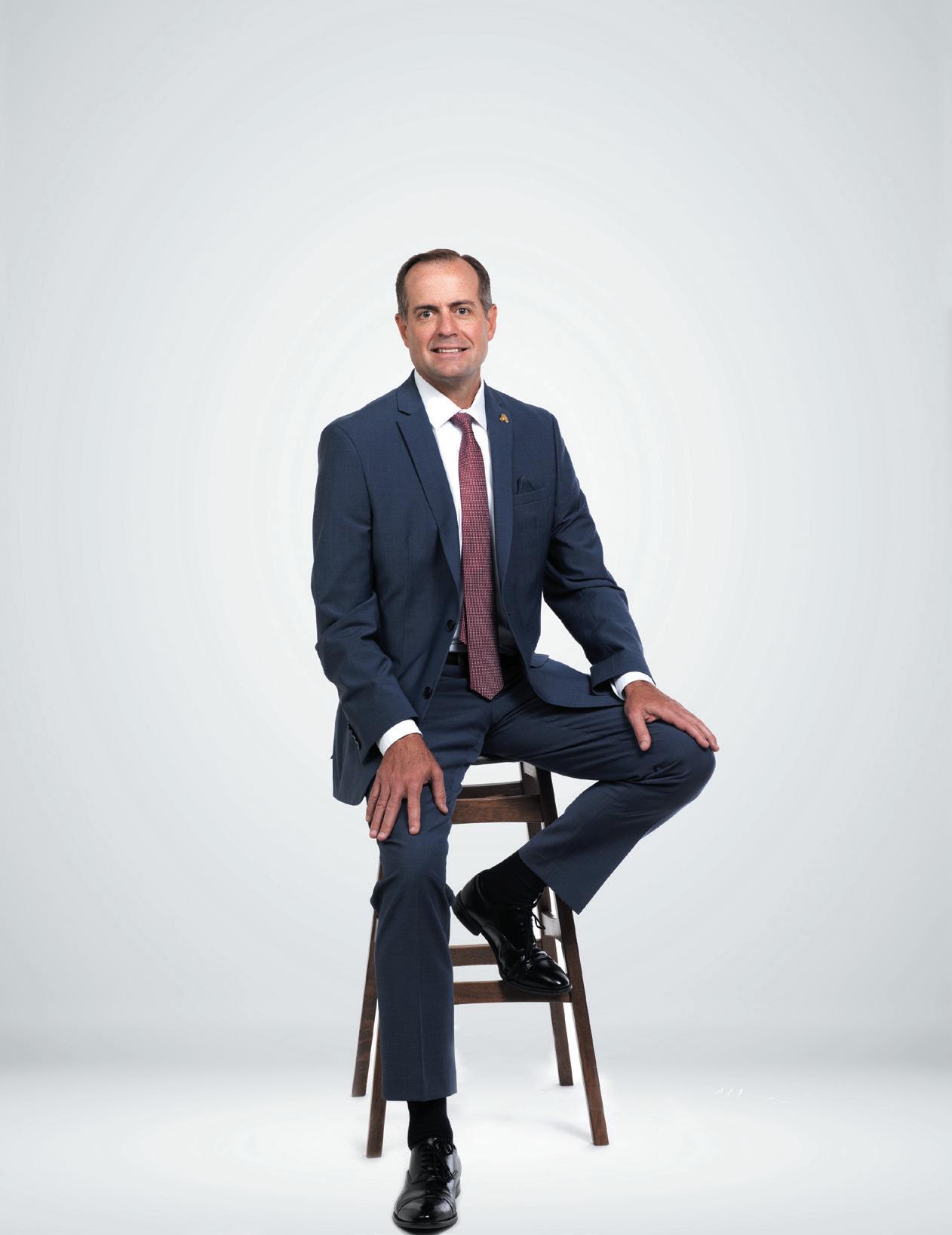
What are you most grateful for?
That, as an essential business, we’ve continued to be able to help our customers and communities. Safety is our top priority. We have taken, and will continue to take, actions to support our employees, customers, and communities during this extremely difficult time.
Do you think the world can be the same after this pandemic?
I think we’re looking at a new way of life.
We are reevaluating the timing of our
“return to normal” activities as the
COVID-19 situation evolves. I know we will continue to keep an open line of communication.
How has your work, business, or lifestyle changed due to the Coronavirus?
My business depends on the relationships that I build with my clients and business partners. It has been challenging to build new relationships with limited one on one and face to face interaction, but, in times such as these, we let our creative selves out. We create ways, we find alternatives and it has been extremely interesting to see how talented people react when pushed to their limits. I found new ways to grow my business that I never thought would be possible. Because of the virus, we will continue thinking outside of the box. I think we will still limit our personal contacts until we have more answers.
What was the main lesson or insight that you have learned during the quarantine?
Educate yourself before preaching to others. There was so much fake news circulating about my industry. I realized that I had to be educated before I could properly educate and answer questions for others.
What was the main challenge for you during this uncertain time?
My main challenge was keeping up with the market. In the month of March, the market changed rapidly, and we had to be on top of these changes so we could educate and guide our borrowers. Interest rates went from mid threes to fours overnight. News went out that the Feds lowered the rate below zero, but the banks were still over four. Our phones were ringing nonstop. We had qualified borrowers who had just lost their jobs and were devastated as well as clients who purchased homes and were now jobless and didn’t know how they were going to make their next payment. Our office became almost like a call center. We were all on our phones helping clients with their concerns, referring them to appropriate channels as well as helping clients move forward with new purchases.
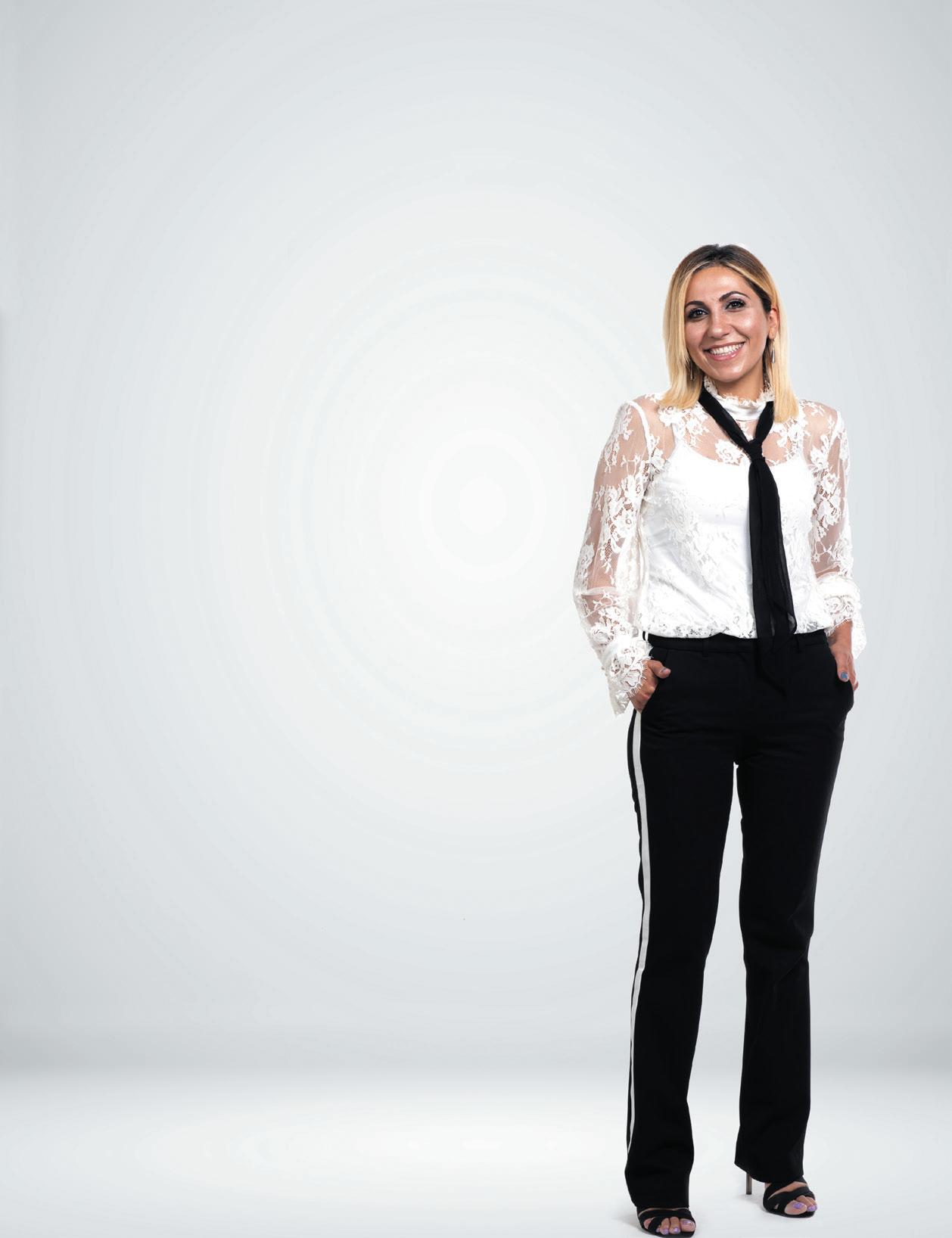
What are you most grateful for?
I realized how important it is to work for a company that has your back and that we were able to continue with our work without losses. We were able to be there for our clients because we had answers and we were educated and ready to help.
Do you think the world can be the same after everything that has happened?
What is normal? I think I will be able to go back meeting with my clients and partners in person, but I believe that our society will be cautious moving forward. We have a scar now that will remind us of these past few months. We will expect the unexpected…
Evergreen Home Loans

How has your work, busiproximity as well as ensure ness, or lifestyle changed the health care team had due to the Coronavirus? taken appropriate measCOVID-19 has challenged ures to maintain their me to find alternative safety. Not being in the solutions to keep my paSutter Medical Hospital & Stanford Hospital operating room was espetients and families, as well as my staff, cially challenging for me; surgeons besafe while continuing to provide excellent care. long in the operating room. It is not a job; it is reAs a surgeon, I am in close, prolonged contact with ally a lifestyle. So, decreasing my surgery cases my patients during surgery. The staff wear approwas very hard. The second challenge I found was priate personal protective equipment to ensure staying active and fit indoors. That part, I think, everyone’s safety. The importance of secure digital was taxing both physically and mentally not only health solutions has become very clear to me durfor me, but also for my friends and colleagues. ing these unprecedented times. My use of digital Many gyms are still understandably closed, but communication not only with my patients, but at least we can go for a hike or jog in the also with my colleagues has skyrocketed. park, which is great! Counseling my patients and participating in conferences via digital com What are you most munication has increased my overgrateful for? all clinical efficiency and I believe I am grateful that my family, we will continue to use this format as well as the Sacramento in the future. community, was not as imWhat is the main lesson that inally forecasted. I am very you have learned during the thankful that Sacramento quarantine? was one of the first cities The quarantine related to COVin the nation to implement ID-19 has highlighted the critical shelter-in-place orders. This importance of natural disaster action likely saved thousands preparedness and, more specificalof lives as well as directly contributed ly, emerging infectious diseases. to Sacramento having one of the lowest Having one of the best health care COVID-19 infection rates among the largsystems in the world, having the est metropolitan areas in the country. strongest economy, and being the most advanced nation in the world, Do you think the world will be the same proved to not be enough to contain after everything that has happened? the COVID-19 pandemic as efficiently Yes and no. The COVID-19 saga will come as many would have assumed. It has to an end at some point. We will get back become clear to me that we have to our routines, travelling, dining with our much work to do to further strengthen friends, and visiting the great outdoors. our health systems to be prepared for But, I believe that life will look different. the unknown. We need to develop better The pandemic significantly increased response plans that account for the social, public awareness about the importance environmental, and institutional factors that of promoting and advocating for hygiene can either support or disrupt emergency in our community: regular hand washing management efforts. with soap for at least 20 seconds, followWhat was the main challenge for you ing facemasks while shopping, and being during this uncertain time? aware of the potential risk that infectious There were at least two challenges. First and foreexposures have on our elderly and vulnermost, only emergent surgeries were initially alable populations. We must respect these lowed. This meant that many surgeries were postimportant guidelines to return to a sense poned as the health care system researched the of normalization in the post-pandemic world. safest way for patients and staff to be in close pacted by COVID-19 as origing social distancing requirements, wear


How has your work, business, or lifestyle changed due to the Coronavirus?
The Coronavirus pandemic has deeply impacted the lives of many people, but, despite the quarantine, everything has proceeded quite smoothly for my family and me. Who would have thought that working from home with kids would be a difficult task? Anyway, my husband and I successfully coped with the challenge. At our company, we switched to online work during the lockdown. We have even created a new ZOOM interview project, which has received a lot of positive feedback. We contacted experts from different areas online, asking them three most relevant questions. Both participants and viewers enjoyed this new format. I believe that you can always find benefits in any situation, even the lockdown. Modifications or transformations may be required but benefits are sure to be found.
What was the main lesson or insight that you have learned during the quarantine?
The biggest lesson I’ve learned this year is to keep focusing on the positive, on my family, and accept that there are things beyond my control. I’d like to quote Mother Teresa, “If you want to change the world, go home and love your family.” This phrase has now become my guiding life principle.
What was the main challenge for you during this uncertain time?
For me, traveling is like a breath of fresh air. So, the hardest thing to cope with during the lockdown was to limit trips and meetings with friends as much as possible. I feel on top of the world when I go to the ocean with my family. There’s nothing like sipping a cup of aromatic coffee while enjoying an ocean view, followed by a walk with my beloved husband and children as we admire the beauty of nature, the salty air and the sound of waves crashing against the cliffs.

What are you most grateful for?
I’m thankful to God for everything that happens to me. Moreover, I’m grateful for everything that happens in the world. I see many things requiring transformation, and the pandemic is an opportunity to look deeper into the health care system, our life and health. This is a chance to realize that no one else is responsible for your health and your body, except for you. So, if you want to live a healthy and positive life, you need to work on improving yourself.
Do you think the world will be the same after everything that has happened?
People have different perspectives and see the world in different ways. Some people find this world gloomy and cruel; others find it kind and fair, or beautiful and magical. Beauty is in the eye of the beholder. For some, this crisis turned out to be a failure and a disaster, for others, it presented new opportunities. What will the world look like in the future? It depends on who we are and how we raise our children. I believe the world would be a better place if we would be a happier and better version of ourselves
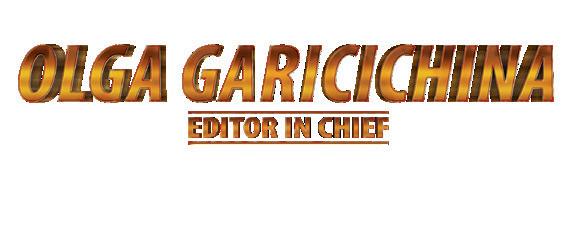
Russian American Media




